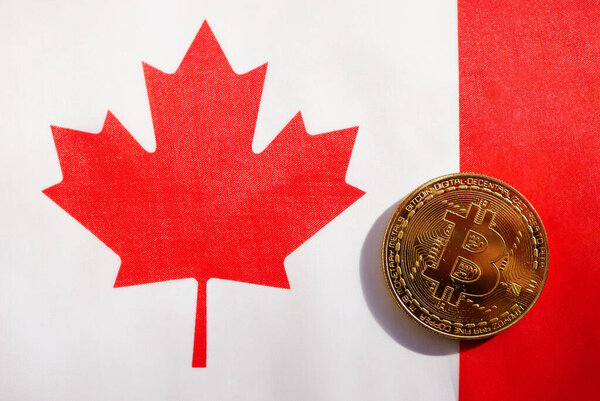ARTICLE AD BOX

As cryptocurrency continues to capture the attention of investors worldwide, Canada has established itself as a significant player in the regulation and oversight of this digital asset market. This comprehensive guide delves into the legal landscape of cryptocurrencies in Canada, exploring how trading, mining, and other crypto activities are regulated.
Is Cryptocurrency Legal in Canada?
Cryptocurrency is indeed legal in Canada. In 2014, Canada pioneered the drafting of official guidelines for crypto trading brokers to enhance security and protect consumer rights. The Canadian government recognizes digital currencies as legal tender, allowing citizens to buy, sell, and trade cryptocurrencies freely, provided they adhere to specific regulatory frameworks designed to maintain market integrity and security.
Key Regulators Overseeing Cryptocurrencies in Canada
Canadian Securities Administrators (CSA)
The Canadian Securities Administrators (CSA) plays a crucial role in creating a unified regulatory environment across Canada’s provincial securities commissions. Organizations like Quebec’s Autorité des marchés financiers (AMF) and the Ontario Securities Commission (OSC) operate under the CSA’s guidance, ensuring consistent application of rules pertaining to securities and crypto assets.
Financial Transactions and Reports Analysis Centre of Canada (FINTRAC)
FINTRAC is tasked with overseeing compliance with anti-money laundering (AML) and counter-terrorist financing (CTF) regulations. Crypto businesses must register with FINTRAC and adhere to strict AML/CTF rules, including customer identification, transaction monitoring, and reporting of suspicious activities.

Office of Superintendent of Financial Institutions (OSFI)
While the OSFI does not directly regulate cryptocurrencies, it supervises federally regulated financial institutions involved in crypto activities, ensuring stability and safety within the financial system.
Regulation of Cryptocurrencies in Canada
Canada employs a multifaceted approach to regulating cryptocurrencies, focusing on AML/CTF compliance, consumer protection, and market integrity.
Anti-Money Laundering and Counter-Terrorism Financing (AML/CTF) Laws
Crypto exchanges and digital currency businesses in Canada must comply with AML/CTF laws. This includes registering with FINTRAC, implementing robust customer identification processes, and monitoring transactions to report any suspicious activities, thereby preventing fraud and ensuring data security.
Consumer Protection
The CSA is vigilant about consumer protection in the crypto space. It ensures that investors are well informed about potential scams and fraudulent activities. The CSA has the authority to intervene in crypto businesses to prevent deceptive practices and protect consumers.
Also Read: FIT21 Act Passed by House: A New Era for Crypto Regulation in the US
Market Integrity
The CSA also focuses on maintaining market integrity by addressing issues like market manipulation, insider trading, and conflicts of interest. It enforces regulations to promote fair and transparent trading, boosting investor confidence.

Regulation of Crypto Exchanges and Mining
Crypto exchanges in Canada must adhere to stringent regulations to operate legally. They are required to register with FINTRAC, comply with AML/CTF laws, and follow securities regulations if they offer digital security assets. Additionally, exchanges must implement strong security measures to protect user funds and provide transparent information about their trading policies.
Crypto mining, while not heavily regulated, must comply with environmental laws and obtain necessary permits, especially in provinces with strict regulations. Notably, in response to environmental concerns, some provinces have paused new crypto-mining operations.
Additional Crypto Regulations in Canada
Canada also has guidelines for other aspects of the crypto ecosystem, such as decentralized finance (DeFi) and cryptocurrency wallets. DeFi protocols may be subject to regulatory scrutiny, particularly regarding AML/CTF compliance and investor protection. Wallet providers offering exchange or custodial services must comply with AML/CTF regulations.
Border Restrictions and Official Declarations
While there are no special rules for bringing cryptocurrencies across Canadian borders, carrying over $10,000 in cash or monetary instruments requires declaration using specific forms. Canadian tax reporting requirements may also apply to these funds.
Money Services Business (MSB) Requirements
Crypto companies in Canada are classified as Money Services Businesses (MSBs) and must register with FINTRAC. They must establish compliance programs, maintain transaction records, report suspicious activities, and ensure client identification to comply with financial regulations.
Conclusion
Navigating the complex landscape of cryptocurrency regulations in Canada can be challenging, but these regulations provide a secure environment for investors and traders. Compliance with these regulations is essential for both businesses and individual investors to ensure the safety of transactions, accounts, and personal data.
Also Read: Turkey and USA Strengthen Cryptocurrency Oversight with New Regulations
.png)
 5 months ago
6
5 months ago
6








 English (US)
English (US)